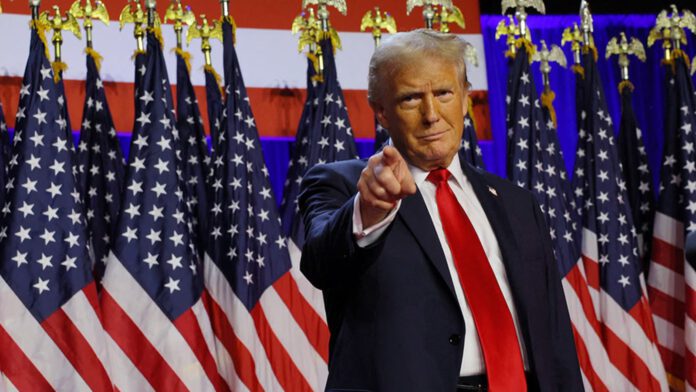
The arrival of Trump 2.0 has been dizzying. In just over 100 days, his policies—from drastically reducing the size of the civil service to attempting to withdraw from Ukraine, from launching a tariff war to straining relations with traditional European allies—have unsettled both the United States and the world. How can we make sense of the principles guiding Trump 2.0? What enduring factors underlie his seemingly erratic behavior, and what impact will this new era have on China and the global order? Addressing these questions requires looking beyond the individual and examining the social forces that brought him to power.
From his first term in 2016 to the start of Trump 2.0 in 2024, it is evident that his support rests on a broad base of disenfranchised Americans and a surge of new right-wing conservative social thought driven by this constituency. Trump did not emerge from nowhere, nor does his behavior arise purely from whim; he is a product of deeper social currents. Understanding him demands analyzing these foundations to uncover the logic behind his policies.
This new right-wing conservatism differs sharply from traditional American neoconservatism. On the surface, it opposes immigration, gender relativism, and free trade. At a deeper level, it is anti-globalization, anti-democracy, and anti-establishment. It no longer seeks to promote universal Western liberal values but instead embraces an “America First” approach. Its ideological roots often draw on Christian traditions, particularly fundamentalist strains of white Christianity.
The rise of this trend is closely tied to the global expansion of liberal capitalism over the past three decades. Individualism has flourished, wealth has concentrated in the hands of a few, social inequality has widened, moral norms have eroded, and community cohesion has weakened. New right-wing conservatism emerges as a social self-protection movement, a reaction to the vulnerabilities and disruptions caused by liberal capitalism. From a Marxist political economy perspective, capitalism operates in cycles of expansion and contraction, and overproduction and overaccumulation naturally undermine profit rates and disrupt equilibrium. In the era of globalization, these cycles manifest worldwide, driving the rise of emerging powers and the relative decline of traditional powers. The emergence of new right-wing conservatism reflects this decline, signaling deeper structural shifts in society.
As this trend spreads, the global order is likely to be dramatically restructured. The anti-liberal values of the New Right threaten the US-led alliance of Western liberal democracies that has dominated since World War II. As the United States pursues strategic retrenchment and prioritizes its narrow national interests, Europe may seek autonomy, and new coalitions may emerge. Countries in the Global South risk marginalization, prompting them to explore alternative paths outside US influence. The spread of New Right conservatism undermines the universality of liberal values, reduces the influence of international organizations like the WTO and WHO, and increases the likelihood of conflicts between nations and ethnic groups, making global instability a persistent reality.
For China, the rise of the New Right presents both challenges and opportunities. With the US still viewing China as a strategic competitor, the rightward shift in American social thought may lead Europe to recalibrate its relations with China in pursuit of its own interests. American allies in Asia, such as Japan and South Korea, may also adjust their positions as the US pursues a narrow national agenda. The focus of China’s engagement with the West will likely shift from ideological struggle over “democracy, freedom, and human rights” to a confrontation centered on national interests, reflecting the anti-liberal and xenophobic tendencies of the New Right.
At the same time, as Western liberalism loses its appeal, China has an opportunity to present alternative global values. Through concepts such as a “community with a shared future for mankind” and initiatives including the Global Development Initiative, Global Security Initiative, and Global Civilization Initiative, China can propose a new framework to guide international cooperation in a period of growing chaos. Amid the evolving dynamics of global alliances, China should continue prioritizing engagement with the Global South, uniting countries that seek a multipolar world and striving to build a more equitable and orderly international system.
The advent of Trump 2.0 marks the beginning of a period of profound global turbulence. The chaos will intensify and may exceed our expectations. Understanding the underlying social currents that drive this era, and preparing strategically for the shifts they bring, is no longer optional—it is essential.
Source: BBC, the New York Times, Reddit, globalpanorama



